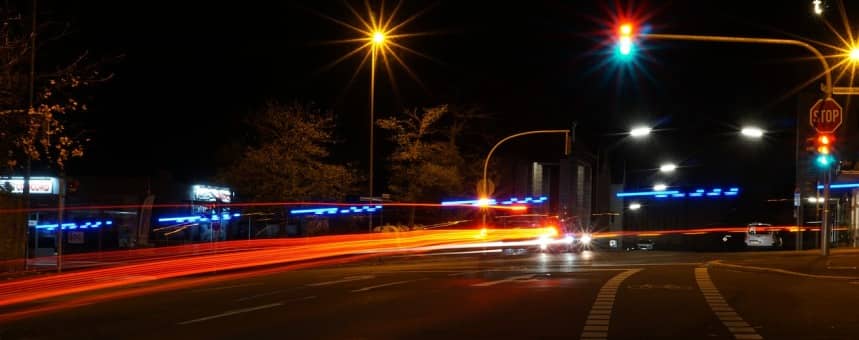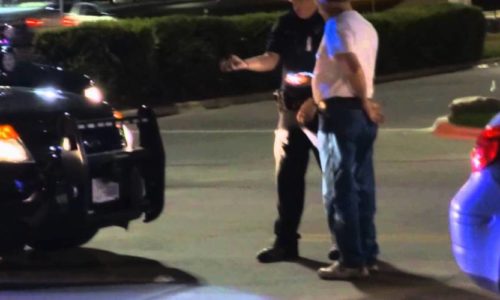Habitual Violator in Georgia

Habitual Violator GA
Learn about DUI habitual violator charges in Georgia, including penalties and look back periods.
Habitual Violator Meaning in Georgia?
In Georgia, a habitual violator is a person who has been convicted of at least three major offenses within five years. Multiple DUI convictions are the most common type of habitual violators in Georgia. Specifically, a fourth DUI conviction is a felony and causes a person to be recognized as a habitual violator.
Multiple DUI arrests in Georgia can lead to a habitual violator status. A first and secoDUI in Georgia warrants misdemeanor charges. A third conviction of DUI is considered a “high and aggravated” misdemeanor. A third DUI conviction brings greatly elevated consequences which can include being deemed to be a habitual violator.
What is a Look Back Period in Georgia?
Every DUI stays on your driving record. After being arrested for a DUI prosecutors look back on your driving record for prior DUI convictions. Prosecutors in Georgia check your prior 10-year driving history for other DUI arrests. The lookback period for driver’s license suspension matters is 5 years.
How are conviction reported? Per the Georgia Department of Driver’s Services website, “After a conviction of a traffic offense, the court will forward notice of that conviction to DDS. The conviction information will be placed on the driver’s driving record by DDS and additional penalties will be imposed, if applicable. Some offenses can result in the loss of your driving privileges. “.1
What types of offenses are reported to the DDS? Drivers with a CDL (commercial drivers license) can end their career with a DUI and alcohol-related violations. The Georgia DDS website has a table of related offenses that can complicate a DUI arrest. Per their website, “Certain offenses will result in a suspension of all driving privileges upon conviction. Some offenses will result in a suspension of all driving privileges for drivers under the age of 21.”.2
Any DUI arrest beyond a 10 year period does not mandate stiffer sentences, but it will not go unnoticed. There is a distinct possibility that out-of-state DUI convictions may be found and considered. Any prior DUI charges can drive the prosecutor or judge to require increased community service, fines, or jail time.
Georgia Less Than Safe
An arrest for driving less than safe, or driving under the influence of a controlled substance, is considered just as much as an alcohol related DUI.
Habitual Violator Penalties in Georgia
A third DUI conviction brings much harsher consequences than a first or second DUI. Penalties for a habitual violator conviction include:
- Driver’s License suspension 2-5 years
- Incarceration for up to 5 years
- Probation for up to 5 years
- Community Service for a minimum of 30 days
- Alcohol Treatment Program mandatory completion
- State Certified DUI Course
After you are released from jail or prison you may be able to obtain limited driving privileges. You will have to have an interlock device installed, at your cost, on your vehicle. Any violation of your limited driving privileges will send you back to jail or prison as a probation violation.
DUI for Habitual Violator
A DUI for a convicted habitual violator is felony and will bring even harsher penalties. Among the penalties for a habitual violator getting a DUI in Georgia are:
- Lifetime Convicted Felon status
- Driver’s License suspension up to 10 years
- Prison incarceration for up to 5 years
- Fines of $5,000 or more
- Probation after release from prison
- Community Service for a minimum of 60 days
- Alcohol Treatment Program
- State Certified DUI Course
- DUI Risk Reduction school
Georgia’s Impaired Driving Laws & Penalties
A quick snapshot of DUI Driving Laws and Penalties can be viewed at the Georgia Governor’s Office of Highway Safety website. The article addresses DUI penalties, as well as laws on Open Container, Aggressive Driving Law, and Impaired Driving.3
OCGA Habitual Violator Suspended License
The restoration of driving privileges after a felony DUI conviction is for a judge to grant the privileges. Persons convicted of felony DUI will probably have restricted driving privileges.
>p>Per the Justia website, a reason may get their license restored by asserting to the judge that, “Refusal to issue a probationary driver’s license would cause extreme hardship by prohibiting an applicant from; going to their place of employment or performing the normal duties of their occupation, receiving scheduled medical care or obtaining prescription drugs, attending a college or school at which he is regularly enrolled as a student.;”4Georgia Code § 40-5-58 – Habitual Violators
The following is the law as it is written in Georgia Criminal Code O.C.G.A. 40-5-58 (2010).
- (a) As used in this Code section, “habitual violator” means any person who has been arrested and convicted within the United States three or more times within a five-year period of time, as measured from the dates of previous arrests for which convictions were obtained to the date of the most recent arrest for which a conviction was obtained, of:
- (1) Committing any offense covered under Code Section 40-5-54 or Code Sections 40-6-391 through 40-6-395 or violating federal law or regulation or the law of any state or a valid municipal or county ordinance substantially conforming to any offense covered under Code Section 40-5-54 or Code Sections 40-6-391 through 40-6-395; or
- (2) Singularly or in combination, any of the offenses described in paragraph (1) of this subsection.
- (b) When the records of the department disclose that any person has been arrested and convicted of a violation of Chapter 6 of this title, or of a valid local ordinance adopted pursuant thereto, of an offense occurring on or after January 1, 1976, which record of arrest and conviction, when taken with and added to previous arrests and convictions of such person as contained in the files of the department, reveals that such person is a habitual violator as defined in subsection (a) of this Code section, the department shall forthwith notify such person that upon the date of notification such person has been declared by the department to be a habitual violator, and that henceforth it shall be unlawful for such habitual violator to operate a motor vehicle in this state unless otherwise provided in this Code section. Notice shall be given by certified mail or statutory overnight delivery, with return receipt requested; or, in lieu thereof, notice may be given by personal service upon such person. In the event that at the time of determination the habitual violator had been issued a driver’s license, such license shall be revoked by such notice and shall be surrendered to the department within ten days of notification of such determination. For the purposes of this chapter, notice given by certified mail or statutory overnight delivery with return receipt requested sent by mail to the person’s last known address shall be prima-facie evidence that such person received the required notice. In addition to the procedure set forth in this subsection, the sentencing judge or prosecutor in a conviction which conviction classifies the defendant as a habitual violator may, at the time of sentencing, declare such defendant to be a habitual violator. The judge or prosecutor shall, when declaring a defendant to be a habitual violator, then give personal notice to such defendant on forms provided by the department that henceforth it shall be unlawful for such habitual violator to operate a motor vehicle in this state unless otherwise provided in this Code section. The judge or prosecutor, as the case may be, shall within three days forward to the department the order declaring that the defendant is a habitual violator, the notice of service, with the defendant’s driver’s license or a sworn affidavit of the defendant declaring that the driver’s license has been lost, and the department’s copy of the uniform citation or the official notice of conviction attached thereto.
- (c)(1) Except as provided in paragraph (2) of this subsection or in subsection (e) of this Code section, it shall be unlawful for any person to operate any motor vehicle in this state after such person has received notice that his or her driver’s license has been revoked as provided in subsection (b) of this Code section if such person has not thereafter obtained a valid driver’s license. Any person declared to be a habitual violator and whose driver’s license has been revoked under this Code section and who is thereafter convicted of operating a motor vehicle before the department has issued such person a driver’s license or before the expiration of five years from such revocation, whichever occurs first, shall be punished by a fine of not less than $750.00 or by imprisonment in the penitentiary for not less than one nor more than five years, or both. Any person declared to be a habitual violator and whose driver’s license has been revoked and who is convicted of operating a motor vehicle after the expiration of five years from such revocation but before the department has issued such person a driver’s license shall be guilty of a misdemeanor.
- (2) Any person declared to be a habitual violator as a result of three or more convictions of violations of Code Section 40-6-391 within a five-year period of time, as measured from the dates of previous arrests for which convictions were obtained to the date of the most recent arrest for which a conviction was obtained, and who is thereafter convicted of operating a motor vehicle during such period of revocation, prior to the issuance of a probationary license under subsection (e) of this Code section or before the expiration of five years, shall be guilty of the felony of habitual impaired driving and shall be punished by a fine of not less than $1,000.00 or by imprisonment in the penitentiary for not less than one nor more than five years, or both.
- (d) Notwithstanding any contrary provisions of Code Section 17-7-95, for the purposes of this Code section, any plea of nolo contendere entered and accepted after January 1, 1976, shall be considered a conviction.
- (e)(1) Notwithstanding any contrary provisions of this Code section or any other Code section of this chapter, any person who has been declared a habitual violator and who has had his driver’s license revoked under subsection (b) of this Code section for a period of five years and two years have expired since the date on which such person’s license was surrendered or an affidavit was accepted as provided in subsection (e) of Code Section 40-5-61, such person may be issued a probationary driver’s license for a period of time not to exceed three years upon compliance with the following conditions:
- (A) Such person has not been convicted, or pleaded nolo contendere to a charge, of violating any provision of this chapter, Chapter 6 of this title, or any local ordinance relating to the movement of vehicles for a period of two years immediately preceding the application for a probationary driver’s license;
- (B) Such person has not been convicted, or pleaded nolo contendere to a charge, of a violation of any provision of this chapter which resulted in the death or injury of any individual;
- (C) Such person has successfully completed, prior to the issuance of the probationary driver’s license, a defensive driving course or a DUI Alcohol or Drug Use Risk Reduction Program as designated by the department;
- (D) Such person has not been convicted, or pleaded nolo contendere to a charge, of violating any provision of Title 3, relating to alcoholic beverages, or of violating any provision of Chapter 13 of Title 16, relating to controlled substances;
- (E) Such person shall submit a sworn affidavit that such person does not excessively use alcoholic beverages and does not illegally use controlled substances or marijuana. It shall be a misdemeanor to falsely swear on such affidavit and, upon conviction, the probationary license shall be revoked. No probationary license shall be issued during the remainder of the revocation period, and no driver’s license shall be issued for the remainder of the original revocation period or for a period of two years from the date of conviction under this subparagraph;
- (F) Such person submits proof of financial responsibility as provided in Chapter 9 of this title; and
- (G) Refusal to issue a probationary driver’s license would cause extreme hardship to the applicant. For the purposes of this subsection, the term “extreme hardship” means that the applicant cannot reasonably obtain other transportation, and, therefore, the applicant would be prohibited from:
- (i) Going to his place of employment or performing the normal duties of his occupation;
- (ii) Receiving scheduled medical care or obtaining prescription drugs;
- (iii) Attending a college or school at which he is regularly enrolled as a student;
- (iv) Attending regularly scheduled sessions or meetings of support organizations for persons who have an addiction or abuse problems related to alcohol or other drugs, which organizations are recognized by the commissioner; or
- (v) Attending under court order any driver education or improvement school or alcohol or drug treatment program or course approved by the court which entered the judgment of conviction resulting in revocation of his driver’s license or by the commissioner.
- (2) Application for a probationary driver’s license shall be made upon such forms as the commissioner may prescribe. Such forms shall require such information as is necessary for the department to determine the need for such a license. All applications shall be signed by the applicant before a person authorized to administer oaths.
- (3) Upon compliance with the above conditions and the payment of a fee of $210.00 or $200.00 when processed by mail, such person may be issued a probationary driver’s license by the department. Upon payment of a fee in an amount the same as that provided by Code Section 40-5-25 for issuance of a Class C driver’s license, a person may be issued a replacement for a lost or destroyed probationary driver’s license issued to him or her.
- (4) A probationary driver’s license shall be endorsed with such conditions as the commissioner deems necessary to ensure that such license will be used by the licensee only to avoid the conditions of extreme hardship. Such conditions may include the following restrictions:
- (A) Specific places between which the licensee may be allowed to operate a motor vehicle;
- (B) Routes to be followed by the licensee;
- (C) Times of travel;
- (D) The specific vehicles which the licensee may operate; and
- (E) Such other restrictions as the department may require. (5) A probationary driver’s license issued pursuant to this Code section shall become invalid upon the expiration of the period of the suspension or revocation of the driver’s license of such person. (6)(A)(i) Any probationary licensee violating the provisions of paragraph (4) of this subsection or operating a vehicle in violation of any conditions specified in this subsection shall be guilty of a misdemeanor. (ii) Except as provided in division (iii) of this subparagraph, any probationary licensee violating any state law or local ordinance involving an offense listed in Code Section 40-5-54 or Code Section 40-6-391 shall be guilty of a felony and shall be punished by a fine of not less than $1,000.00 or by imprisonment in the penitentiary for not less than one nor more than five years, or both. (iii) Any probationary licensee violating any state law or local ordinance involving a felony offense listed in Code Section 40-5-54 shall be guilty of a felony and shall be punished as is provided for conviction of such felony.
- (B) Any probationary licensee who is convicted of violating, or who pleads nolo contendere to a charge of violating, any state law or local ordinance involving an offense listed in Code Section 40-5-54 or Code Section 40-6-391 or any probationary licensee who is convicted of violating, or who pleads nolo contendere to a charge of violating, the conditions endorsed on his license, shall have his license revoked by the department. Any court in which such conviction is had or in which said nolo contendere plea is accepted shall require the licensee to surrender the license to the court. The court shall forward the license to the department within ten days after the conviction or acceptance of the plea, with a copy of the conviction. Any person whose probationary license is revoked for committing an offense listed in Code Section 40-5-54 or Code Section 40-6-391 shall not be eligible to apply for a regular driver’s license until the expiration of the original five-year revocation period during which the probationary license was originally issued or for a period of two years following the conviction, whichever is greater.
- (C) If the commissioner has reason to believe or makes a preliminary finding that the requirements of the public safety or welfare outweigh the individual needs of a person for a probationary license, the commissioner, in his discretion, after affording the person notice and an opportunity to be heard, may refuse to issue the license under this subsection.
- (D) Any person whose probationary driver’s license has been revoked shall not be eligible to apply for a subsequent probationary license under this Code section for a period of five years.
- (7) Any person whose probationary license has been revoked or who has been refused a probationary license by the department may make a request in writing for a hearing to be provided by the department. Such hearing shall be provided by the department within 30 days after the receipt of such request and shall follow the procedures required by Chapter 13 of Title 50, the “Georgia Administrative Procedure Act.” Appeal from such hearing shall be in accordance with Chapter 13 of Title 50.
- (f) If a person’s license was revoked for a violation of Code Section 40-6-391 resulting from a motor vehicle collision in which any person lost his life, the person whose license was revoked shall not be entitled to a probationary license as set forth in this Code section.
If you have any DUI, especially a potential felony DUI, you should call the experienced Cherokee County DUI lawyers at Grisham, Poole, and Carlile in Canton, Georgia.
FOOTNOTES
- 1 Georgia DDS, “Suspensions and Revocations”, December 16, 2015, Available from Georgia DDS
- 2 Georgia DDS, “Offenses Reported to DDS”, July 1, 2015, Available from Georgia DDS
- 3 Georgia Governor’s Office of Highway Safety, “Georgia’s Impaired Driving Laws & Penalties”, August 11, 2014, Available from Georgia Governor’s Office of Highway Safety
- 4 Justia, “§ 40-5-58 – Habitual violators; probationary licenses”, April 23, 2015, Available from Justia


